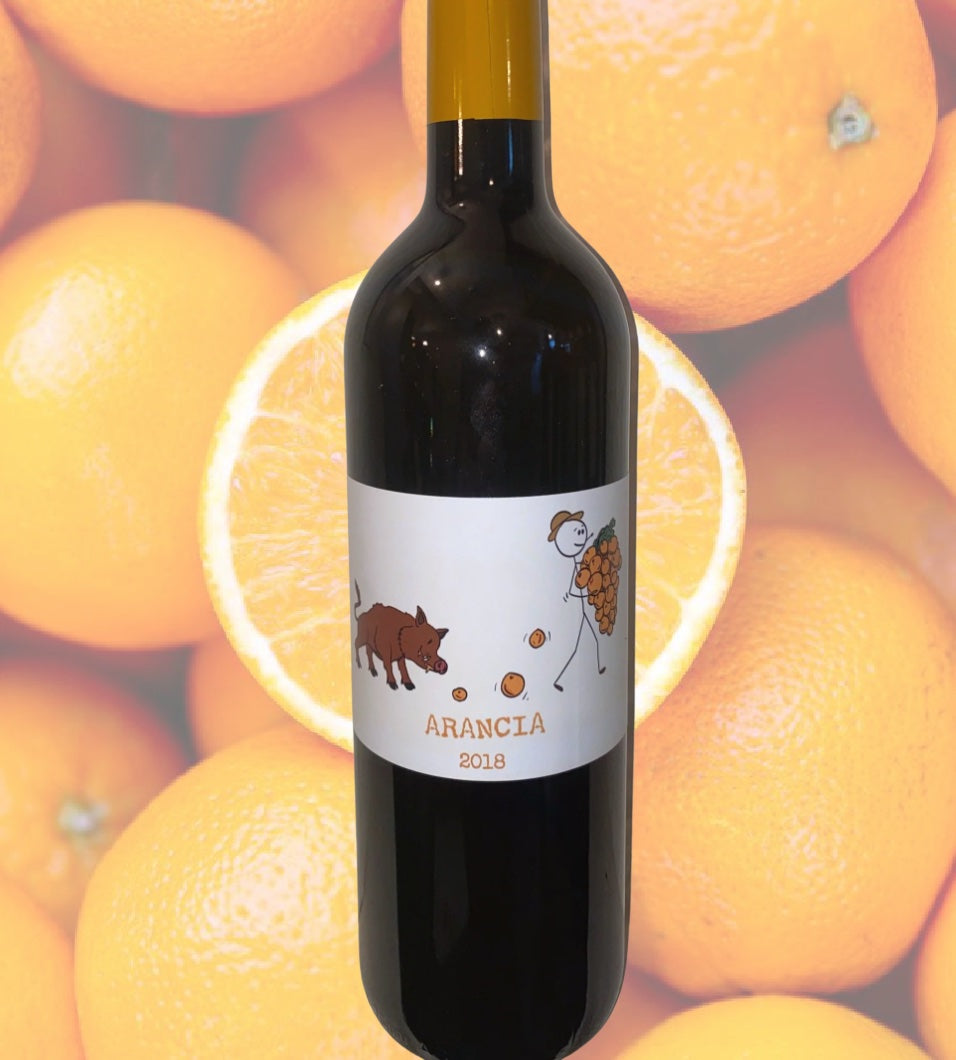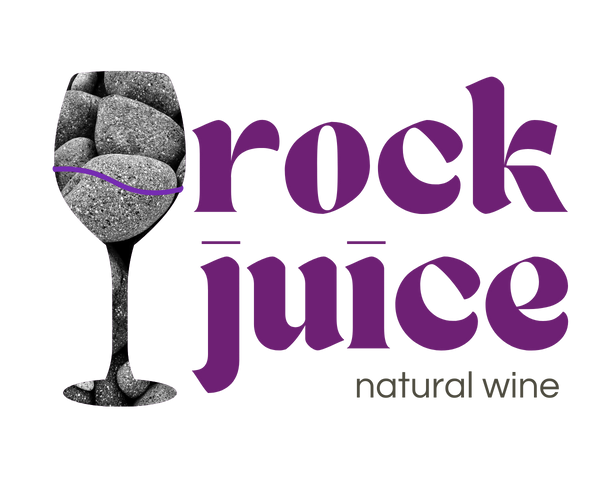1
/
of
1
2018 Borut Blažič Arancia
2018 Borut Blažič Arancia
Region: Goriška Brda < Dobrovo < Slovenia
Grapes: Rebula, Sauvigonasse (Jakot)
Winemaker: Borut Blažič
Vineyard/Cellar Stats: Organic, Biodynamic farming; grapes are
destemmed and undergo 7 days skin maceration, production style is very
'red wine', with pump overs and punchdowns; aged in old oak barrel
500l for 42 months; bottled unfined/unfiltered with no added So2;
zero-zero; 12% ABV; 23 cases
The Blažič estate is in Brda, arguably the most famous wine region in
Slovenia. But it is significantly closer to Udine, in Italy, (30km)
then to Slovenia's capital Ljubljana (120km). And while the Brda
dialect of Slovenian is spoken here, so is Italian. Farming is what
is found here. Vineyards. Cherries, apricots, pears, figs, olives.
This the heart of the Mediterranean in both soul and culinary culture.
The story starts in the early 1900's when Peter Blažič arrives from
Austria-Hungary into Brda and found his homestead in the village of
Plešivo. The farming is good here. There are old terraces for the
vines. The wine culture goes back hundreds of years. And the markets
of Italy are easy to get to. His farm is spread out through Brda and
Plešivo and over to the East. After World War II, the
Italian-Yugoslavian border is established and it cuts through Peter's
homestead. The physical home is in Yugoslavia, but the vineyards are
in Italy. Tensions are high between the two countries and work is very
difficult in the vineyards and orchards. At this time the Blažič
family are fruit growers and sellers. Then more war came.
Within two years he would be the first Blažič to produce and bottle
wine from his own vineyards. Thru the mid-nineties he watched as Brda
wine evolved and develop a unique conversation in the world of wine.
Quality and identity began to take shape. He was particularly inspired
by the work of Gravner and Radikon, and by 2000 he decided to commit
his winery to only making macerated wine. During the period 2000-2004,
Borut made only orange wines from his best holdings- fashioned
primarily from Rebula and Jakot. But, try as he did to achieve a
similar quality to his mentors, the market in the early 2000s was not
always there for this wine conversation. He evolved his production
slightly, but he persevered in his original work. Fast forward to
today, and nothing has really changed. One third of the Blažič family
holdings are on Italian soil. Rebula and Sauvignonasse (aka Sauvignon
Verte / Friuliano / Jakot) are the principle production grapes of the
homestead. The ancient terraced vineyards have remained unchanged, and
the farming is non-certified organic. He makes one non-macerated white
wine, because the market wants that. But, he has always been
committed to the local tradition of maceration and continues to make
orange wines under his 'matured wines' line.
And we love his skin contact 'Arancia', a serious orange wine that
feels classic and food friendly, not weird or stinky. There are
tannins, and red wine texture, but there is pretty stone fruit, citrus
and acidity. Drink it cool but not too cold, to avoid amping up the
tannins. Pairs well with stinky cheese, roast chicken, and spicy
fried food.
Grapes: Rebula, Sauvigonasse (Jakot)
Winemaker: Borut Blažič
Vineyard/Cellar Stats: Organic, Biodynamic farming; grapes are
destemmed and undergo 7 days skin maceration, production style is very
'red wine', with pump overs and punchdowns; aged in old oak barrel
500l for 42 months; bottled unfined/unfiltered with no added So2;
zero-zero; 12% ABV; 23 cases
The Blažič estate is in Brda, arguably the most famous wine region in
Slovenia. But it is significantly closer to Udine, in Italy, (30km)
then to Slovenia's capital Ljubljana (120km). And while the Brda
dialect of Slovenian is spoken here, so is Italian. Farming is what
is found here. Vineyards. Cherries, apricots, pears, figs, olives.
This the heart of the Mediterranean in both soul and culinary culture.
The story starts in the early 1900's when Peter Blažič arrives from
Austria-Hungary into Brda and found his homestead in the village of
Plešivo. The farming is good here. There are old terraces for the
vines. The wine culture goes back hundreds of years. And the markets
of Italy are easy to get to. His farm is spread out through Brda and
Plešivo and over to the East. After World War II, the
Italian-Yugoslavian border is established and it cuts through Peter's
homestead. The physical home is in Yugoslavia, but the vineyards are
in Italy. Tensions are high between the two countries and work is very
difficult in the vineyards and orchards. At this time the Blažič
family are fruit growers and sellers. Then more war came.
Within two years he would be the first Blažič to produce and bottle
wine from his own vineyards. Thru the mid-nineties he watched as Brda
wine evolved and develop a unique conversation in the world of wine.
Quality and identity began to take shape. He was particularly inspired
by the work of Gravner and Radikon, and by 2000 he decided to commit
his winery to only making macerated wine. During the period 2000-2004,
Borut made only orange wines from his best holdings- fashioned
primarily from Rebula and Jakot. But, try as he did to achieve a
similar quality to his mentors, the market in the early 2000s was not
always there for this wine conversation. He evolved his production
slightly, but he persevered in his original work. Fast forward to
today, and nothing has really changed. One third of the Blažič family
holdings are on Italian soil. Rebula and Sauvignonasse (aka Sauvignon
Verte / Friuliano / Jakot) are the principle production grapes of the
homestead. The ancient terraced vineyards have remained unchanged, and
the farming is non-certified organic. He makes one non-macerated white
wine, because the market wants that. But, he has always been
committed to the local tradition of maceration and continues to make
orange wines under his 'matured wines' line.
And we love his skin contact 'Arancia', a serious orange wine that
feels classic and food friendly, not weird or stinky. There are
tannins, and red wine texture, but there is pretty stone fruit, citrus
and acidity. Drink it cool but not too cold, to avoid amping up the
tannins. Pairs well with stinky cheese, roast chicken, and spicy
fried food.
Regular price
$26.00
Regular price
Sale price
$26.00
Unit price
/
per
Shipping calculated at checkout.
Couldn't load pickup availability


